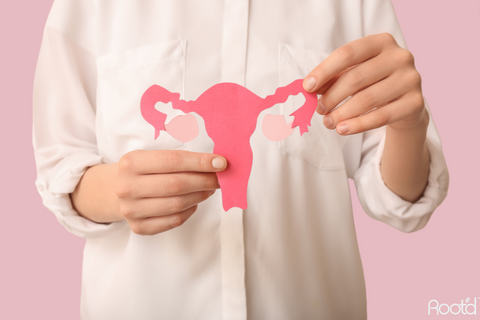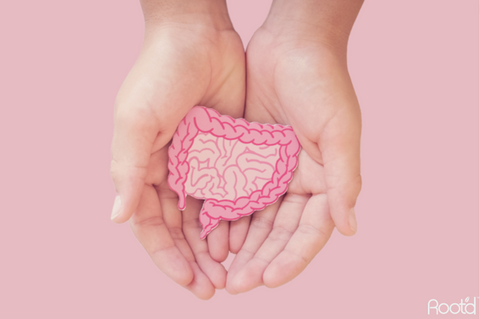Does Hydration Affect Fertility?

Did you know that staying well-hydrated is essential in achieving and maintaining fertility? This should be no surprise, as water plays a vital role in almost all physiological functions, including reproduction. Keep reading to learn more about the importance of hydration when trying to get pregnant.
Why is Hydration Important for Fertility?

About 60% of your body weight is water. Your blood is 85% H2O, your brain 75%, your muscles 80%, and even your bones are 25% water, which shows how vital water is for your health.
It keeps all your cells and organs functioning properly, including reproductive cells (sperm, egg) and reproductive organs (ovaries, uterus, testes, thyroid).
In fact, water accounts for more than 70 per cent of a cell's total mass, which includes your eggs and the cells lining the uterus.
The vitamins and minerals you obtain from a nutritious diet and prenatal vitamins are key factors for maintaining a healthy lifestyle while trying to get pregnant, but in order for your body to use these nutrients efficiently, you also need plenty of water. Proper hydration is essential at all stages of your pregnancy journey, especially when you're trying to conceive.
The Link Between Hydration and Fertility
Here are six reasons why proper hydration is essential when trying to conceive:
1. Egg Health and Sperm Quality

Adequate hydration is vital for optimal sperm health and semen volume in men. For women, well-hydrated cells in the ovaries support the development and maturation of healthy eggs. Dehydration can result in poor egg health and less cervical fluid secretion, which is essential for the transportation of sperm to the fallopian tubes for egg fertilization.
2. Vaginal and Follicular Health

Research shows that hydration aids in follicular development and improves vaginal dryness. Any inflammation or infection in the vaginal area can potentially impact the higher reproductive tract, including the fallopian tubes and ovaries, which can potentially influence fertility and general reproductive health. Proper hydration and a healthy vaginal environment are crucial in maintaining the natural balance of bacteria and preventing the development of infections, such as bacterial vaginosis or yeast infections.
3. Improved Cervical Mucus around Ovulation

In addition to its role in the fertilization process, cervical mucus can be a helpful tool in predicting ovulation and timing sex to increase the chances of conception.
Having little to no cervical fluid can be an indication that you are dehydrated. You should see 2 to 3 days of egg white, stretchy cervical mucus around ovulation. Without enough H2O, the cervical mucus that balances vaginal pH also becomes too acidic, harming the sperm.
4. Hormone Balance

Hormones are chemical messengers that regulate many bodily functions, including ovulation and the preparation of the uterine lining for embryo implantation. Proper hydration assists in the balanced secretion and transportation of these hormones, ensuring they reach their target cells and organs in the right amounts and at the right time.
One hormone particularly affected by dehydration is testosterone, which plays a key role in sperm production and male fertility. When the body is dehydrated, it can lead to reduced testosterone levels, which in turn can decrease sperm count and motility. Sperm motility refers to the ability of sperm to move efficiently towards the egg for fertilization.
5. Detoxification

Hydration plays a crucial role in detoxification, which in turn can have a positive impact on fertility. When the body is properly hydrated, it helps to flush out toxins and waste products more efficiently. This cleansing process allows the reproductive organs to function optimally, promoting healthier hormone levels and overall reproductive health, which increases your chances of conception.
6. Fetal Development

Aside from regulating hormones and body temperature, water also helps deliver nutrients to the placenta, which is vital from the time of fertilization. Once you achieve conceiving, your body will need more H2O as your blood volume expands. Staying hydrated is crucial for fetal development as it is needed to form the amniotic fluid. Without sufficient water, a developing baby can't survive, increasing the risk of miscarriage.
So, how much water should you be drinking for good fertility?
Health experts typically recommend drinking at least 64 ounces of water each day. Some would say to drink half of your body weight in ounces, while others would advise you to pay attention to the color of your urine. If it's light yellow or almost clear, drink when you're thirsty, but if your urine is dark yellow, you should drink more water.
The truth is daily water intake recommendations vary for each person based on factors such as age, body size, activity level, climate, and the foods and fluids you consume.
Hydration doesn't have to come from drinking plain water alone. If you're having a hard time remembering to drink H2O, here are a few tips to help you stay hydrated:
- Carry a reusable water bottle with you so you can sip on water throughout the day.
- Add a wedge of lime or lemon, frozen fruit, or mint to your water for added taste.
- Replace sugary and artificially sweetened beverages with water, vegetable juice, milk, or decaffeinated and unsweetened tea.
- Consider sugar-free electrolyte beverages or coconut water, as well as another great option for staying hydrated. Experts recommend including one to two servings with each meal or snack.
So you see, you don't have to chug a gallon of water to meet your hydration goals. In fact, drinking too much water may do more harm than good as it flushes out vital electrolytes from your body, leading to health problems, including fertility issues.
Can Electrolyte Imbalance Cause Infertility?
It is known that disturbances in the electrolyte balance may lead to reproductive dysfunction. Electrolytes, specifically choline, are vital for fertility, and some studies show they may help improve sperm parameters and ovarian function.
Hydration, coupled with a healthy diet and prenatal supplement, is an excellent way to take control of your reproductive health.
Nourish and Hydrate with Root'd!

Root'd Prenatal MULTI is a great way to get your daily dose of electrolytes and other key nutrients such as folate, iron and calcium that you need on your journey to parenthood, especially if you have difficulty meeting your dietary requirements through food alone. Its powder form makes it a convenient and delicious way to stay hydrated and nourished while trying to conceive without the unhealthy amount of added sugar that most hydration products have.
Try Root'd now! Use code TTC15 for 15% off + free shipping on your first order! And, if you don't feel the difference, you're covered by our 100% Love Guarantee. What does that mean? It means that If you don’t love Root’d, it’s on us!







































My name is Jerome from Guinea, I was married for 18 years with no child. My wife and I went to the hospital to seek medical care/advice and I was diagnosed with zero sperm count (AZOOSPERMIA). Also, i was told there’s no cure. And after looking for a solution for a long time, my wife told me about Dr. Iyabiye who helped solve her friend’s husband the same problem. We gave it a trial and luckily, I got cured and became fertile and have kids. Doctor’s contact: uduehiherbalcare@gmail.com or call/text : +234 706 647 4917
AZOOSPERMIA almost ruined my life and marriage. I battled zero sperm count for years and all efforts was nothing but a waste. until a friend who got cure of same problem told me about the doctor that helped and made him fertile. I reached out to him and became well & fertile after taking his medication. I also know about his medication for: weak erection, watery sperm , low libido and other male infertility cases while talking to for my case. Contact: +234 706 647 4917 uduehiherbalcare@gmail.com
Leave a comment